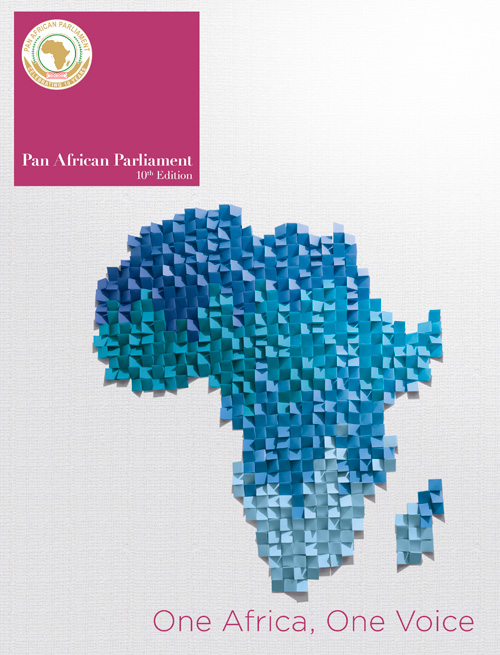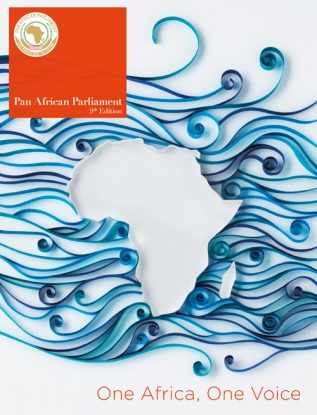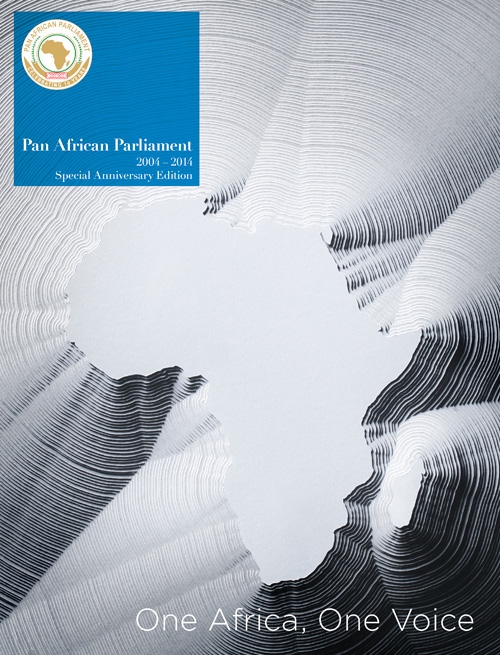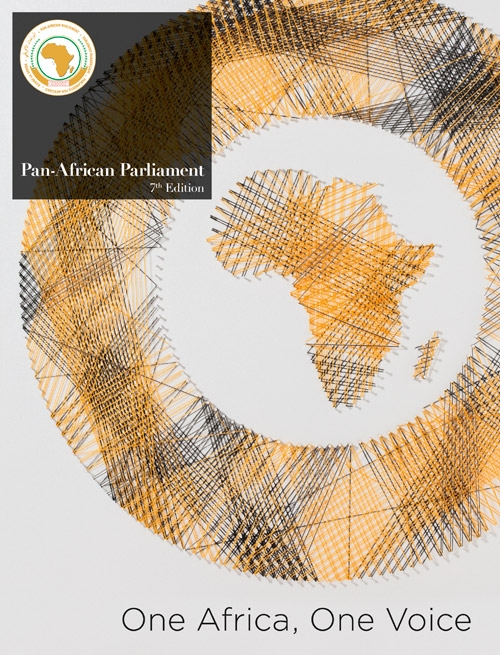
The AU has long proclaimed that it is the voice of the African people. It has fought against slavery, colonialism and, of course, apartheid. It has struggled endlessly to bring about peace, to fight against corruption and to elevate and uplift Africa’s people.
Now it has introduced Agenda 2063, and while in 48 years many of those who are working towards achieving its goals will most likely be retired or no longer with us to see the fruits of their endeavours, they will experience victories along the journey – and that momentum has just begun.
Agenda 2063’s foundations lie in pan-Africanism and the African Renaissance, both of which are central to achieving African unity. Some may call it idealism but for the AU it is a mandate. It exists to ensure that the continent is integrated, prosperous and peaceful.
The past has played an enormous role in the develop-ment of Agenda 2063. Five decades of achievements and challenges have been noted and analysed. The African people have spoken, been listened to and their needs heeded. It is almost as though the time for planning and talking is done –Agenda 2063 is the tangible construction of a radically new improved Africa. The AU describes it as a ‘call to action’.
The Agenda is designed to include a very compre-hensive list of mandates. While it may appear that it revisits the usual basket of African issues, this time they are comprehensively wrapped into seven clearly defined aspirations, namely a prosperous Africa based on inclusive growth and sustainable development; an integrated continent, politically united and based on the ideals of pan-Africanism and the vision of Africa’s Renaissance; an Africa of good governance, democracy, respect for human rights, justice and the rule of law; a peaceful and secure Africa; an Africa with a strong cultural identity, common heritage, shared values and ethics; an Africa whose development is people-driven, relying on the potential of African people, especially its women and youth, and caring for children; and Africa as a strong, united and influential global player and partner.
It is interesting to note that each aspiration is crucial to the next and runs a full circle of dependency. They’ll be no mean feat to achieve, which is perhaps why it will require five decades to accomplish. With co-operation and commitment, however, it is entirely possible.
One of the most immediate efforts will be centred on ‘silencing the guns by 2020’. It’s a fact that conflicts are not as prevalent as they were in the past, yet we still see thousands upon thousands of people fleeing from oppression and war.
The AU’s solution in Agenda 2063 is to make peace a reality through enhanced dialogue-centred conflict prevention and resolution. It is determined ‘not to bequeath the burden of conflicts to the next generation of Africans’, as pledged by all the Heads of State and Government of the AU Assembly last year.
Zimbabwe’s President Robert Mugabe – who is also Chairman of the AU – said in June that while steady progress has been made to suppress conflict, efforts need to be redoubled especially now given the loss of African youths to the Mediterranean as they desperately flee the continent.
The time for talking is done – Agenda 2063 is the catalyst for real change
With just five years left to achieve the goal, the AU’s Peace and Security Council is ironically fighting a war against wars, especially as South Sudan continues to be marked by continued fighting and attacks against civilians, creating a dire humanitarian crisis.
The long-term solution, the AU believes, lies in not just the commitment by nations to ensure good governance and all other related peace efforts, but also to nurture a culture of peace and tolerance in the youth. And that, of course, requires education.
As with all the Agenda 2063 aspirations, education is linked to yet another fast-tracked project: to eradicate poverty in one generation. This will require enhanced investment in skills and productivity assets, and will provide a platform for more jobs and improved incomes.
Ultimately, achievements will ripple out and translate into improved and affordable housing, land (ownership and use thereof) and improvements to lifestyle, including those living in rural areas and informal settlements. Further education focus areas – specifically science,
technology, research and innovation – are identified as being key to expanding and building knowledge, so that this in turn can also help drive African innovations.
All educational standards are to be harmonised in this effort, inclusive of early childhood, primary and secondary schooling. The establishment of an African Accreditation Agency will help to develop and monitor standards, with a view to expand student and academic mobility across the continent.
There is also a sense of urgency with regard to the establishment of the Continental Free Trade Area by 2017 as well as the introduction of an African Passport by 2018. It is hoped that the latter will see the elimination of visa requirements for all continental African citizens.
In agriculture, the traditional hand-held hoe is to be abolished by 2025, making way for more modern and productive sciences, technology and innovation.
Climate change and the environment are also not forgotten, nor is infrastructure, food security, economic growth, agribusiness, gender parity and, of course, the youth and women.
While it may seem that Agenda 2063 is a regurgitation of old issues, the AU difference lies in eight ‘critical enablers for Africa’s transformation’. These include people ownership and mobilisation; African resources to finance its development; accountable leadership and responsive institutions; capable and democratic developmental States and institutions; changed attitudes and mindsets; taking a pan-African perspective; ownership of the African narrative and brand; and an African approach to development and transformation.
The AU recognises that Agenda 2063 will not happen easily, that it will require a conscious and deliberate effort to transform the continent, especially leadership. Ownership of continental programmes must be embraced, particularly among regional economic communities, for it is those that will be the building blocks for unity.
The toolbox of programmes is vast, many in place for at least a decade, not least of which is the PAP and the African Peer Review Mechanism (APRM).
Panel member of the latter, Baleka Mbete, says that the APRM ‘is unprecedented in its scale, scope and ambition as it offers an opportunity to stakeholders to change the usual political dynamics and focus national conversations on progress and policy’.
There is a natural synergy with the PAP, given its role to promote democracy and ensure good governance.
Dr Frene Ginwala, former National Speaker of South Africa – who has been involved in developing the strategic framework for Agenda 2063’s inclusive gain and sustainable development aspects – agrees with Mbete that the PAP should be debating APRM reports.
‘There is nothing to stop the PAP from debating any and all policies, documents emanating from the AU and particularly the strategic plan, which is described as being citizen-led,’ she says. ‘The PAP has got to be leading the citizen input into this programme.
‘It cannot be left only to Governments but has to be a Parliamentary process as well … in the way it debates the subjects it discusses, the representations it makes as a voice of the African people should be heard at every stage of the development of this plan and its implemen-tation, and that what is necessary from the African continent must come from Parliament. The important thing is to make sure that one’s views are actually heard because we can and we have this habit sometimes of setting up structures, but as mere talking shops.’
Even though there is still much discussion about Agenda 2063, there is action and, in its final run to deadline, it is anticipated that African countries will by then be among the best global performers for quality-of-life measurement.
Africa’s GDP should be proportionate to its share of the world’s population and natural resource endowments. Its agriculture should be feeding the continent’s masses… Its blue ocean economy should be well developed… Trade borders removed… Regional co-operation a proven reality… Poverty eliminated… Conflict and terror wars nonexistent… The list is endless. However, it is the ‘now’ that will pave the path for commitment. The time for talking is done – Agenda 2063 is the catalyst for real change.







